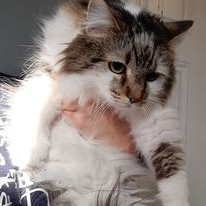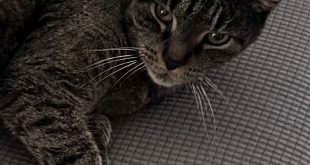Diarrhea in cats is a common problem in cats, and many factors can cause it. Pet owners need to understand the causes of diarrhea and how to treat it to keep their furry friends healthy. This article will provide an overview of cat diarrhea and offer tips on effectively managing it.
What is Diarrhea?
Diarrhea is a common gastrointestinal disorder that affects cats of all ages. Frequent, watery stools characterize it and can be caused by various issues, including infections, dietary indiscretion, parasites, or underlying medical conditions. In some cases, the cause may be unknown.
Symptoms of Diarrhea in Cats
The most common symptom of cat diarrhea is watery stools, often accompanied by straining or discomfort during defecation. Other symptoms may include vomiting, loss of appetite, lethargy, dehydration, or weight loss. If your cat exhibits any of these signs or symptoms, it’s important to seek veterinary care as soon as possible.
Causes of Diarrhea in Cats
There are many potential causes of diarrhea in cats, including infections (bacterial or viral), dietary indiscretion (eating something they shouldn’t have), parasites (such as roundworms or Giardia), allergies, stress, or an underlying medical condition. In some cases, the cause may be unknown.
Diagnosing Diarrhea in Cats
If your cat exhibits signs or symptoms of diarrhea, it’s important to see a veterinarian for a proper diagnosis. The veterinarian is likely to conduct a human assessment and collect a fecal specimen for laboratory investigation to ascertain the source of the looseness of the bowels. Depending on the outcomes of these assessments, extra tests could be proposed to exclude any fundamental medical issues.
Treating Diarrhea in Cats
The management of diarrhea depends on the fundamental source and can run from dietary transformations to anti-infection agents or different prescriptions. In certain examples, helpful care, for example, liquids and electrolytes, may be required to forestall drying out from drawn-out episodes of looseness of the bowels. On the other hand, if your feline has been determined to have an illness or organism-related looseness of the bowels, your vet will probably recommend anti-toxins or another drug as important.
Home Care for Diarrhea in Cats
In addition to seeking veterinary care for your cat’s diarrhea, there are also several things you can do at home to help manage their symptoms:
• Regimenize diet: Regimenizing your cat’s diet can assist in stabilizing their abdomen and decrease soreness in their digestive system. For example, try feeding them boiled chicken breast mixed with white rice or boiled potatoes until their diarrhea improves.
• Avoid treats and table scraps: It’s important to avoid feeding your cat any treats or table scraps as this can contribute to their diarrhea.
• Increase fluid intake: Ensure your cat gets fluids to prevent dehydration. Offer them fresh water throughout the day, and if needed, provide additional fluids with a syringe or an oral rehydration solution.
• Monitor stools: Monitor your cat’s stools for consistency, color, or frequency changes. If you notice any changes, contact your vet for further advice.
• Reduce stress: Stress can exacerbate diarrhea in cats, so it’s important to do what you can to reduce stress in their environment. For example, please provide them with plenty of places to hide and rest, and give them plenty of attention and affection.
Conclusion
Diarrhea is a common problem in cats that many factors can cause. Therefore, pet owners need to understand the causes of diarrhea and how to treat it to keep their furry friends healthy. If your cat exhibits signs or symptoms of diarrhea, it’s important to seek veterinary care as soon as possible for a proper diagnosis and treatment plan. In addition, there are several things you can do at home to help manage their symptoms, such as feeding a bland diet, avoiding treats and table scraps, increasing fluid intake, monitoring stools, and reducing stress in their environment.




